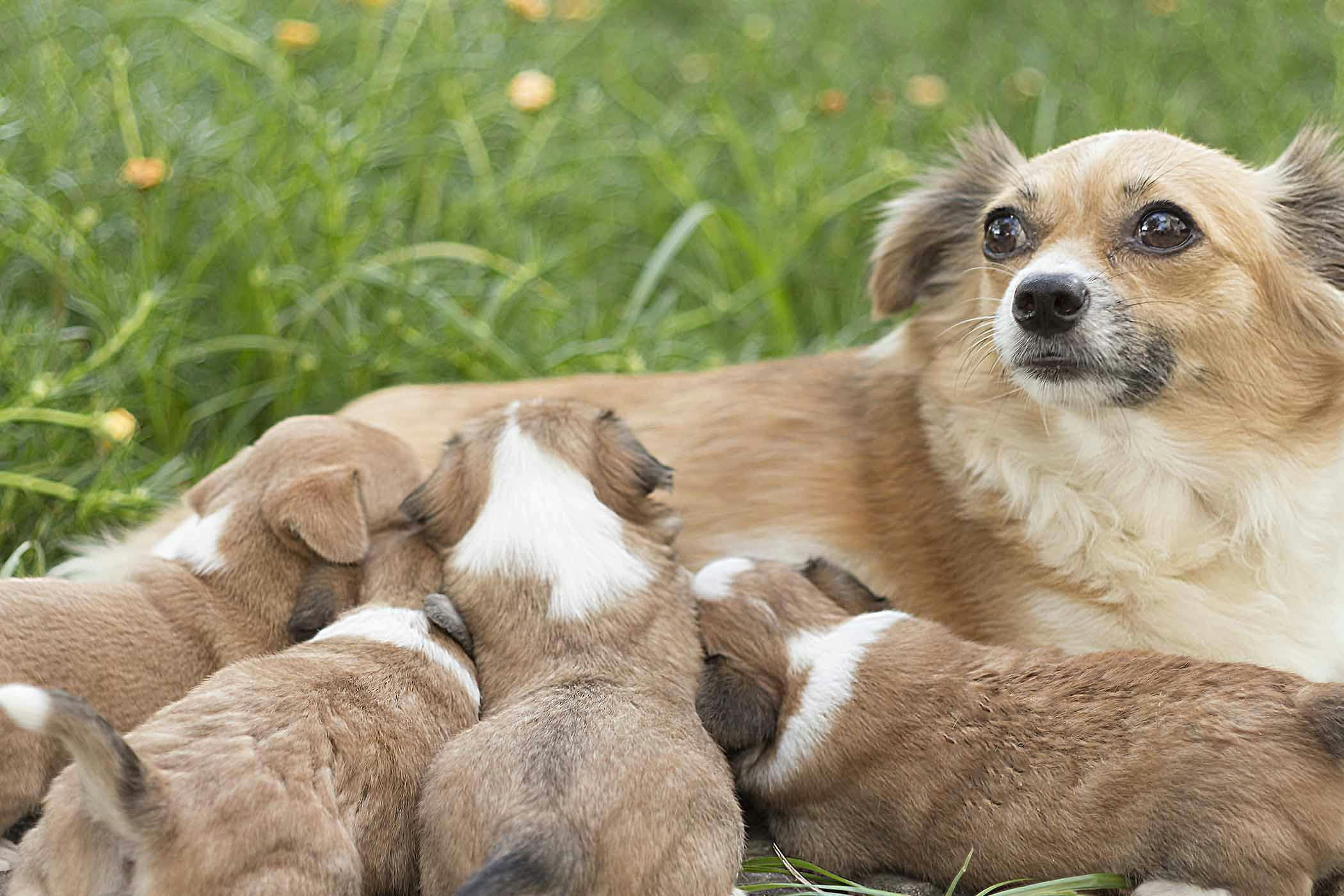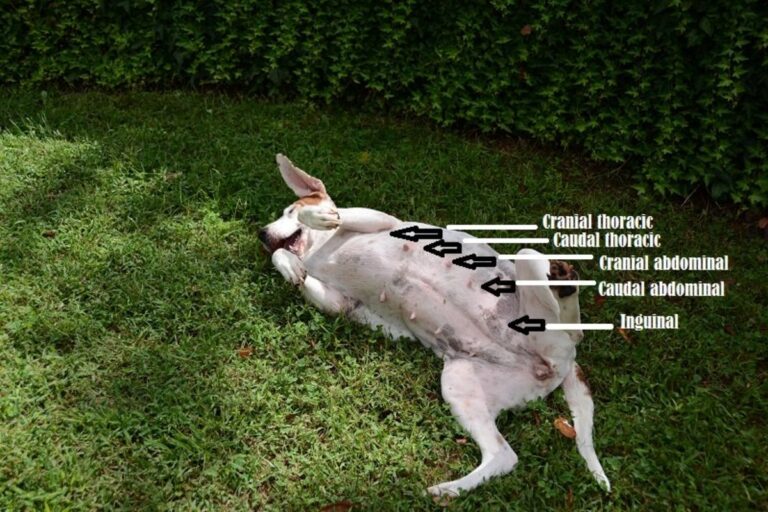When a dog’s nipples release milk upon being squeezed, it could be a sign of a medical condition, such as a hormonal imbalance or a false pregnancy. This should be promptly evaluated by a veterinarian to ensure the dog’s health and well-being.
Squeezing a dog’s nipples to obtain milk without a medical reason can cause discomfort and potential health issues for the dog. If you notice your dog’s nipples releasing milk, it’s important to seek professional veterinary advice to determine the underlying cause and provide appropriate care.
We’ll explore the possible reasons for this occurrence and offer guidance on how to address the issue for your dog’s health and comfort.
What Causes Canine Lactation
Canine Lactation can occur due to various reasons such as pregnancy, pseudopregnancy, hormonal imbalance, and stimulus-triggered lactation. During pregnancy, hormonal changes stimulate milk production in preparation for nursing the offspring. Pseudopregnancy can result in mammary gland enlargement and milk production in non-pregnant female dogs. Hormonal imbalance can also lead to abnormal lactation. Stimulus-triggered lactation can occur in response to constant stimulation of the nipples. It is essential to consult a veterinarian to diagnose the underlying cause of lactation and provide appropriate treatment.

Credit: wagwalking.com
Symptoms Of Canine Lactation
If you notice milk coming from your dog’s nipples when you squeeze them, it could be a sign of canine lactation. This condition may indicate a hormonal imbalance, pregnancy, or false pregnancy. Other symptoms may include enlarged mammary glands, nesting behavior, and restlessness in female dogs.
It’s essential to consult a veterinarian for proper diagnosis and treatment.
| Enlarged Nipples | One common symptom of canine lactation is the enlargement of the nipples. This can be a noticeable physical change and may be accompanied by tenderness or sensitivity in the nipple area. |
| Milk Secretion | Another indicator of canine lactation is the secretion of milk from the dog’s nipples. This can be spontaneous or may occur when pressure is applied to the nipples. |
| Behavioral Changes | Canine lactation can also lead to behavioral changes in the dog, such as increased nesting behavior, restlessness, and maternal instincts. |
| Nursing Behavior | During lactation, dogs may exhibit nursing behavior such as licking, nuzzling, and attempting to nurse objects or other animals. |
Managing Canine Lactation
Managing Canine Lactation can involve various approaches. Veterinary Consultation is crucial to rule out any underlying health issues and determine the appropriate course of action. Hormonal Therapy may be recommended to regulate lactation. Additionally, Dietary Adjustments, such as reducing the dog’s calorie and protein intake, can help suppress milk production. Behavioral Modifications, like discouraging the dog from licking or stimulating her nipples, are also important in managing lactation. It’s important to seek professional guidance to ensure the well-being of the dog and prevent any potential complications.
Frequently Asked Questions Of When I Squeeze My Dogs Nipples Milk Comes Out
Why Does Milk Come Out When I Squeeze My Dogs Nipples?
When a dog’s nipples are squeezed, milk can be expressed due to hormonal changes. This is normal in lactating females.
Can My Female Dog Produce Milk Without Being Pregnant?
No, a female dog can produce milk without being pregnant due to a false pregnancy or mastitis.
Is It Normal For Female Dogs To Leak Milk?
Yes, it’s normal for female dogs to leak milk after giving birth as their bodies produce milk for nursing puppies. This process is known as lactation and helps provide essential nutrition to the newborns. If you notice excessive leaking or issues, consult a vet for further evaluation.
Why Does My Female Dog Have Liquid Coming Out Of Her Nipples?
Female dogs may have liquid coming out of their nipples due to hormonal changes, pregnancy, or false pregnancy. Ensure she is not lactating excessively, which could indicate an underlying health issue. If concerned, consult a veterinarian for proper diagnosis and treatment.
Conclusion
Understanding the reasons behind your dog’s nipple secretions is crucial for their health. If you notice any unusual symptoms, consult a vet. Your furry friend’s well-being is the top priority. Stay informed and provide the best care possible for your loyal companion.



